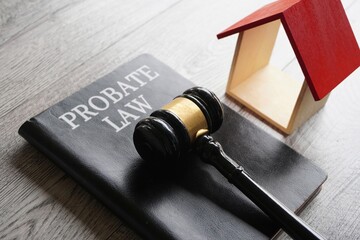When it comes to truck accident cases, evidence is critical for proving liability and recovering damages. Evidence can include photographs, eyewitness statements, and official documents such as police reports.
Take photographs of the accident scene, damage to vehicles, and any visible injuries. Documenting this information promptly is important, as memories fade and physical evidence disappears over time. If you need help, call Duluth Truck Accident Lawyer.
 Establishing Fault
Establishing Fault
Whether you’re seeking compensation for your injuries or defending against accusations of fault, the right evidence can make all the difference. During the moments following a car accident, most people’s thoughts are focused on their safety and well-being, but it’s important to take the time to gather as much evidence as possible to support your claims. The evidence you collect can help establish who is at fault for the crash and, in some cases, help determine the extent of your injuries and losses.
One of the most important pieces of evidence is witness testimony and physical proof of what happened. Human memory is notoriously unreliable, so eyewitness accounts often need to be corroborated by other evidence such as the location of the damage on both vehicles and any underlying circumstances that may have played a role in how the crash occurred.
A police report is another piece of crucial evidence, particularly the officer’s assessment of who was at fault for the accident. It is important to obtain a copy of the report from the law enforcement office that responded to the scene of the accident and keep in mind that the other driver may have provided a different account to the police or to their insurers, which could affect how the accident was recorded on the police report.
If the accident was caused by a defective product or if it happened due to weather conditions, collecting physical evidence can be even more important. For example, skid marks on the road or a lack of them can provide strong indications that one driver drove too fast for conditions. Perspective photos can also reveal if a stop sign or other traffic control device was obscured by overgrown trees or obstructed by nearby buildings.
In addition to physical evidence, other important pieces of evidence can include expert witness statements or accident reconstruction analysis. A qualified accident reconstruction specialist can offer an objective analysis of the events leading up to the collision and offer opinions as to which driver is liable for the crash.
It’s also crucial to check around for witnesses who saw the accident unfolding in those critical moments before impact. If you have their contact information, they can help add credibility to your claims by confirming or contradicting the other party’s version of what happened and offering additional testimonies about how the accident occurred. Witness testimony can be especially helpful if you are trying to prove that the other party breached their duty of care, directly causing your accident and your injuries. Medical records, X-rays, and photographs of your injuries over time can also be very persuasive. These pieces of evidence can support your claim that you were not responsible for the accident and deserve fair compensation. However, be careful not to admit any fault at the scene of the crash – anything you say can be used against you later on.
Establishing Damages
When pursuing a car accident case, you must establish both liability and damages. Liability refers to the responsibility for causing the crash, while damages refer to the total value of your accident-related losses and injuries. To prove both of these elements, you will need a strong foundation built on compelling evidence. A thorough approach to collecting and presenting this evidence will help you build a strong compensation case.
The importance of evidence in a car accident case cannot be overstated. Several different types of evidence can strengthen your claim, including police reports, eyewitness statements, photographs and video, and medical records. Using these different forms of evidence to build your case will provide insurance companies, legal professionals, and the courts with a more complete picture of what happened.
Photographs and videos can serve as powerful evidence in car accident cases by providing a visual representation of how the collision occurred. They can also be used to establish the conditions at the time of the accident, such as weather, road conditions, and traffic signals or signs. These factors can play a crucial role in how the accident happened and which party was at fault for it.
Eyewitness testimony can be an incredibly important piece of evidence in a car accident case. It can serve to corroborate or contradict the statements of the parties involved in the accident, and it can provide a neutral perspective of the events that took place. The most effective eyewitness statements are those that are gathered shortly after the crash when memories are still fresh and details remain accurate.
Medical records are another vital form of evidence that can be used to demonstrate the extent of your injuries and the total cost of your accident-related losses. These documents can include doctor’s notes, x-rays, and other diagnostic tests that can confirm the severity of your injury and provide proof of how the accident has directly impacted your life.
Finally, financial documentation, such as pay stubs and receipts for out-of-pocket expenses, can serve as tangible evidence of your economic losses, including lost wages and future earning potential. Other forms of financial evidence that can strengthen your case include expert testimony and any other relevant information regarding the impact of the accident on your quality of life.
Establishing Liability
Car accident cases require strong evidence to establish fault, prove damages, and recover compensation. Unfortunately, insurance companies and defense attorneys often challenge the claims of victims and try to minimize their losses. Therefore, it is essential to gather the necessary evidence as soon as possible and have your attorney review it for strength and validity before submitting it to the other party.
Physical evidence such as skid marks, damage to the vehicles, and debris can provide valuable clues to how the collision happened. Similarly, witness statements can paint an accurate picture of the events that occurred. Furthermore, expert testimony from medical professionals or accident reconstruction specialists can help bolster your claim.
Documentary evidence such as photos, videos, and accident reports also play a significant role in establishing liability. Using digital cameras and other devices to capture the scene immediately after the crash can reduce the likelihood that evidence will be altered or destroyed in the future.
Another crucial piece of evidence in any car accident case is the adherence or violation of traffic laws. If the at-fault driver ran a red light or disobeyed any other traffic law, this can establish their liability for the accident.
A police report is an official document that contains important information about the incident, including a diagram of the accident scene, witness statements, and a preliminary determination of fault. This evidence can be useful in negotiating with the insurance company and may become admissible in court.
Eyewitness testimony and video evidence can also be powerful pieces of proof. In addition to providing an objective account of what happened, video footage can refute any false accusations made by the other driver or their insurance company.
In some cases, the at-fault party may admit to causing the accident. This is valuable evidence, especially if it is overheard by someone who can testify about it in court.
If you are able, it is important to obtain the contact information of all people who witnessed the accident. Ideally, your lawyer will be able to obtain witness statements before the other party’s defense team has the opportunity. In addition to establishing liability, this evidence can support your case when it comes to proving the extent of your injuries and the value of your damages. For example, if you were hospitalized for several months and suffered a permanent loss of earning capacity as a result, the cost of your medical bills and lost wages can be established through medical records, pay stubs, and other documentation. This information will allow your attorney to calculate the total amount of your damages. Then, your attorney can submit this information to the insurance company and request a fair settlement on your behalf. If the insurance company refuses to cooperate, your lawyer can file a lawsuit against them.


